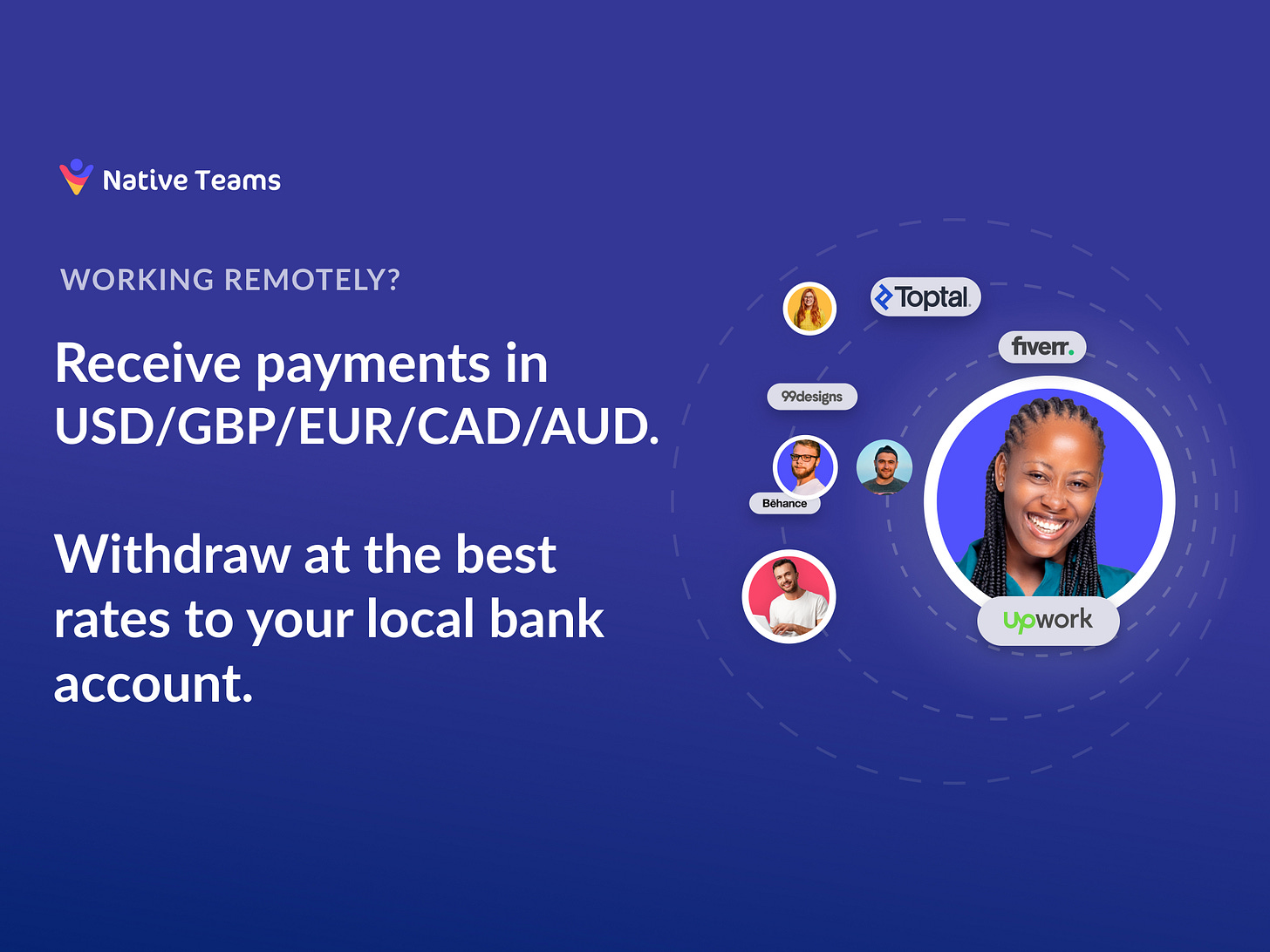Today’s Notadeepdive is 790 words.
If you missed last week’s newsletters, catch up here and here. But first, Native Teams has something for you:
TOGETHER WITH NATIVE TEAMS
Multi-Currency Payments At Your Fingertips!
Are you a freelancer or remote worker earning in USD, GBP, EUR, CAD, or AUD? Get paid through Native Teams and withdraw directly to your Naira account.
With $19 (8,800), you get;
- Our Multi-Currency Wallet.
- Invoice and send payment links to your clients in 50+ countries.
- Withdrawal at best rates to your local bank account.
The best thing from a slow news week
In a super slow news week, all the action was still to be found in news around the economy. Nigeria’s electricity subsidies, which I wrote about in passing in a newsletter over a year ago, seem set to go, weeks after petrol subsidies were also discontinued. The cost of Nigeria’s electricity subsidies reportedly stands at around N50 billion per month. Yet, like most services, subsidies create a dizzying cycle of inefficiencies or gaps that can be exploited by bad actors.
Fuel subsidies, for instance, benefitted a very small group of Nigerians who often made a killing by fudging the numbers of products imported or simply selling it across the border where prices are higher. Subsidies on university education which have lasted for decades have some part created a tertiary school system that has no autonomy and a quality of education that is firmly on the decline. Electricity subsidies for their part, have prevented serious investors from putting their money to work in Nigeria’s electricity sector. Ten of Nigeria’s eleven electricity distribution companies recorded losses of N2 Trillion in the years between 2013 and 2019.
Yet, nothing puts the Nigerian economy and the state of our electricity sector in a context like some of the data shared this week by the Bureau of Statistics. Per that report, the total number of electricity-paying customers is 11.27 million, and roughly half of that number—5.31 million—are metered. The remainder of customers receives estimated bills. How do you achieve economic growth with these numbers?
Patricia’s whole lot of nothing
It’s been four weeks since I reported that the retail crypto platform, Patricia, was breached. I shared at the time that the breach happened in 2021 when the company was integrating a new payment processor. Some $2 million was reportedly stolen in BTC and Naira assets, and without a series of unfortunate events, it is doubtful that the company would ever have disclosed the hack. In fairness, this is Nigeria where you should be worried when a company discloses that it was hacked. In a super secretive ecosystem where there aren’t a lot of real consequences for getting breached, it’s easy to understand why companies act this way. If anything, you should be worried when/if a company discloses a hack.
Given the timing of Patricia’s hack–2021–it’s curious that it’s only telling customers two years later. The company has continued to insinuate that the hack was only recently discovered, but conversations with several people close to the matter challenge that version of events. Beyond this, I couldn’t get over a recent Instagram video where the Patricia CEO, Hanu Fejiro, spoke passionately about how the company is getting through this difficult phase.
It was an appeal to emotion that traced the many challenges the company has faced throughout its existence. The crypto ban, the pandemic, a global downturn in crypto fortunes, etc. Perhaps there’s some sympathy the company and its founders deserve when you consider how some other crypto companies have not survived these turns of fortune. But not so fast! There were still two important questions that did not have any immediate answers.
What happens to the customer monies that were stolen in the said breach and when will they ever get it back? All crickets on that front. Also, the company’s refusal to be completely honest about the incident also leaves a bad feeling. Instead, the company’s founder spoke a lot about how the persons behind the hack have been identified and some vagaries about the courts and justice. Yet you know what’s still missing? A clear idea of when customers will get their monies back.
For primers on how to navigate situations where customers don’t have access to funds, Patricia can take a leaf from Eyowo, who I’ve called out more than once for owing staff salaries. Through a rough period where customers could not withdraw their monies, Eyowo gave clear timelines, communicated when it missed those timelines, and spoke frankly about the situation.
It helps to remind founders that reporters don’t make any money when or if businesses fail, but that every startup has a duty to customers, especially when their funds are trapped for weeks.
That’s it. Here’s what I read this week.
What I’ve been reading:
This fascinating article about what baby boomers and Gen X folks get up to on TikTok
If you can finagle a subscription to the Atlantic, this story about weddings from a luxury wedding planner is fantastic
I was doing some studying and realised that while I’ve probably used “disruptive innovation” in conversations, I really needed this Harvard Business Review article on what it really means.
See you on Sunday!





